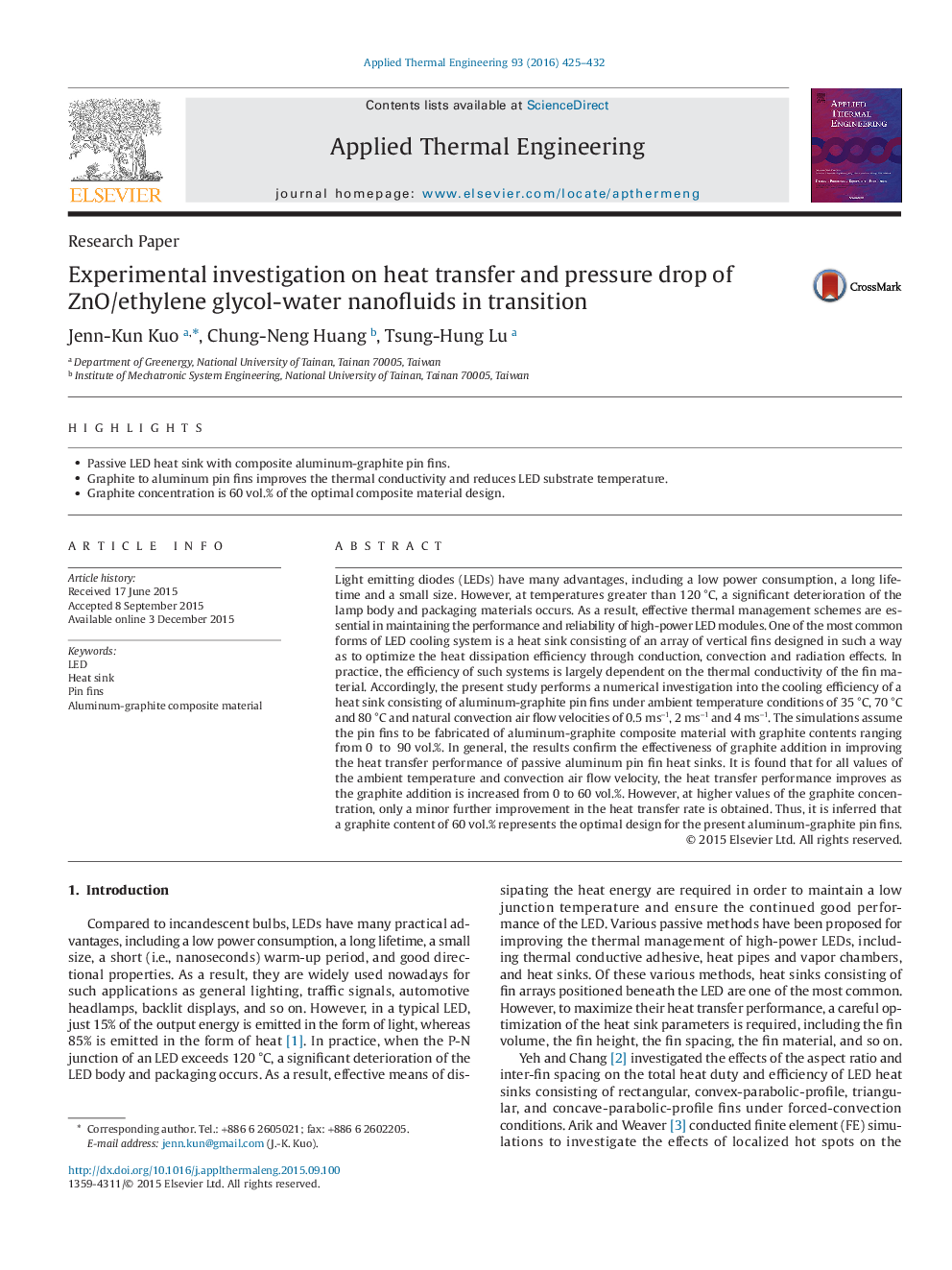| Article ID | Journal | Published Year | Pages | File Type |
|---|---|---|---|---|
| 7048749 | Applied Thermal Engineering | 2016 | 8 Pages |
Abstract
Light emitting diodes (LEDs) have many advantages, including a low power consumption, a long lifetime and a small size. However, at temperatures greater than 120â°C, a significant deterioration of the lamp body and packaging materials occurs. As a result, effective thermal management schemes are essential in maintaining the performance and reliability of high-power LED modules. One of the most common forms of LED cooling system is a heat sink consisting of an array of vertical fins designed in such a way as to optimize the heat dissipation efficiency through conduction, convection and radiation effects. In practice, the efficiency of such systems is largely dependent on the thermal conductivity of the fin material. Accordingly, the present study performs a numerical investigation into the cooling efficiency of a heat sink consisting of aluminum-graphite pin fins under ambient temperature conditions of 35â°C, 70â°C and 80â°C and natural convection air flow velocities of 0.5âmsâ1, 2âmsâ1 and 4âmsâ1. The simulations assume the pin fins to be fabricated of aluminum-graphite composite material with graphite contents ranging from 0â to â90 vol.%. In general, the results confirm the effectiveness of graphite addition in improving the heat transfer performance of passive aluminum pin fin heat sinks. It is found that for all values of the ambient temperature and convection air flow velocity, the heat transfer performance improves as the graphite addition is increased from 0 to 60 vol.%. However, at higher values of the graphite concentration, only a minor further improvement in the heat transfer rate is obtained. Thus, it is inferred that a graphite content of 60 vol.% represents the optimal design for the present aluminum-graphite pin fins.
Related Topics
Physical Sciences and Engineering
Chemical Engineering
Fluid Flow and Transfer Processes
Authors
Jenn-Kun Kuo, Chung-Neng Huang, Tsung-Hung Lu,
